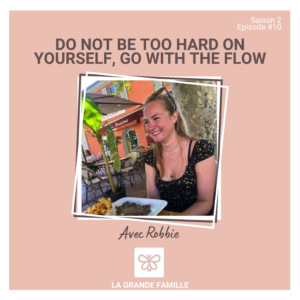If you want to host an au pair, your role is fundamental! It is you, as the Mum, who creates the link and harmony between the members of the family and the au pair you are hosting.
This is your role, dear mums: you are going to become a host mum for your au pair!
Whether this is a new experience for your family or you’re a seasoned host family, you’re going to become the young au pair’s surrogate mum. He or she will be living with you for a long time and may be going away from home for the 1st time.
You will often be the one who introduces your au pair to your family life, your children’s personalities and the rules of the house.
You will then become the guide when your au pair arrives. You will also be their confidante and adviser. You’ll be the one who explains things to them and cheers them up if they’re feeling down. You’ll set the framework, reassure and readjust if necessary.
This relationship is key to the success of your au pair experience. The young person you are hosting should feel like a member of the family!
Here are a few tips to make the connection with your au pair as natural as possible.
Never forget: treat your au pair as you would want your child to be treated in a foreign family.
1. Before arriving, you should feel that you know your au pair well.
Building a solid relationship begins with your discussions with your future au pair.
During these discussions, you need to ‘feel’ whether you want to build a lasting relationship with this person or not. Do you want to support them in their au pair project? Do you want to spend time with them to advise them or simply have dinner together every day?
If the answer is yes, then we advise you to organise one or 2 additional interviews (with the family, for example) to confirm your impressions or not.
After that, your au pair may not arrive for several weeks or months. So it’s important that you keep in touch to get to know each other better! You need to feel that you are welcoming your nephew or niece and not a stranger!
It’s also important for your children to feel familiar with the person who will be looking after them on a daily basis! Your au pair will feel even more at ease when they arrive at your home!
2. Communicate openly with your au pair.
The basis of a successful au pair experience is the ability to communicate openly and frankly with your au pair.
If this seems easy for you because you are in a familiar environment, it may be more difficult for your au pair at first. She/he may be afraid to tell you something that’s not right and find it difficult to express because of the language barrier.
One of your roles is therefore to put your au pair at ease right from the start, to ask her/him questions to make sure that everything is fine or to see if she/he needs help with certain things.
It can happen that your au pair wants so much to do well that she/he says yes to all your instructions even if she/he hasn’t understood – out of a desire to do well and/or shyness – get into the habit of asking her/him what she/he has to do or having her/him repeat it, this will reassure you both and help her/him work on her/his French.
It’s important that your au pair understands that she/he can tell you things spontaneously and that together you’ll find solutions!
This helps the family to get on well together ….., a bit like a couple!
3. Share your schedules with each other
Your au pair often arrives from far away to look after your children and live as an immersive member of your family. You will no doubt have discussed this at length during your Skype interviews before her arrival.
But it’s always a good idea to be there for the first few days to accompany her, to explain what you expect of her, her responsibilities and her schedule.
Once again, some things may seem obvious to you because you know your children and your home inside out. But there’s nothing obvious about that for the au pair! The time spent on integration at the outset will be time saved in the future, as it will enable you to repeat things (a little less?).
A successful au pair experience depends on mutual respect for each other’s schedules. You have your own work commitments and organised family celebrations. The au pair has his/her own schedule too (French lessons, planned outings, planned weekend trips).
Let the au pair know in advance if you have people coming to visit you or if you’re going away for the weekend to visit friends, so that they can organise things themselves! And ask him/her to do the same if he/she decides to organise a trip or an outing.
Flexibility is good …. But anticipation is better!
4. Your au pair is there to help you!
Your au pair will need to be able to adapt to new situations: new places, a new daily routine, new tasks.
There’s a lot for him or her to deal with.
First of all, it’s important to prioritise the things you really want him/her to do. Maybe he/she won’t be able to help your 8 year old with his/her French homework in the first few months, but your au pair will be able to make dinner a priority!
Perhaps it’s too logistically demanding to take your 3 children to their extra-curricular activities on Wednesdays. In this case, try to find a solution with the local mums.
The role of the childminder is to relieve you of the tasks that are essential to you: playing with the children, ensuring safety during bath time, and making sure that the children get out of school on time.
However, you may have to let go of what’s secondary if you feel it’s too difficult for him/her, or else ask for things gradually, while you get used to them.
An au pair who is stressed by being overloaded or badly organised will feel like a failure, and the whole family is likely to suffer, especially the children.
5. Enjoy the cultural exchange!
A good relationship between an Au Pair and their host mum involves taking an interest in each other’s lives and being able to enjoy the little moments of life together. It can also mean travelling together, either nearby or on holiday in an unfamiliar place!
Ask your au pair if she would be willing to prepare a typical dinner from home.
Ask her to tell your family what it’s like to be a child in her country: the games, how school works, etc.
The key to a solid relationship between you, your family and your au pair is to find the right balance between enjoying being together and maintaining mutual respect for each other’s needs.




